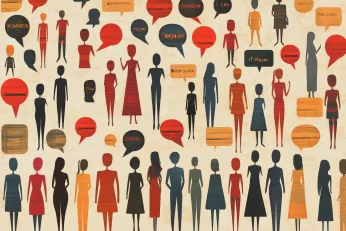
The end of the printed Independent: the shock we all knew was coming
For years, those of us who have been thinking deeply about the digital translation have been asking the same question:
What happens when one of our national newspapers closes – or goes online only?
Anyone who didn’t know that day was coming has either been sticking their head in the sand about the changing economics of print newspapers in the digital age, or fundamentally believes that nostalgia is a business model.
As print sales have declined across the board – an inevitable consequence of the massive battle for attention being waged now that everyone has access to connected devices – it was inevitable that there would not be enough readers and advertisers to keep the same number of titles around we had 30 years ago. And so it has been proved.
The only question was: who and when?
An Independent transition – to online only

And now the question has been answered. The tiny (just over 40k paid copies a day), loss-making Independent is closing its print edition, and going online-only. There’s part of me that’s deeply sad about this. I remember the launch of The Independent, and was a loyal reader for years, valuing both its exceptional photography and independent stance. And its lack of royalty coverage. But that Indy is long gone. Today’s notice of the killing of the print edition is more like seeing an old friend’s suffering finally end.
Come March, The Independent will be an online-only national news site. And now the conversation changes.
New questions for a new age
This shift raises a whole bunch of new questions, like:
Who is next?
Folks on Twitter have been suggesting answers:
@adders @kevglobal @marksweney the guardian
— Tom Goodwin (@tomfgoodwin) February 12, 2016
@johncthompson @adders Express.
— RickWaghorn (@RickJWaghorn) February 12, 2016
@adders If Murdoch shuffles off his mortal coil sometime soon, my money would be on the Times.
— John Thompson (@johncthompson) February 12, 2016
If I had to put money on it, I’d choose one of the tabloids. I think the remaining “qualities’ all have things going for them, but the sort of content the red-tops (and even the Express) peddle is so abundant and free online that the print edition is only valuable through convenience and nostalgia.
The Independent in intensive care
Equally important is:
Will The Independent survive the transition?
That’s an interesting question. With my “digital journalist” head on, there are some deeply fundamental weaknesses to the site. The staff show a lack of awareness of some crucial digital skills, and much of their copy could be run in print, with no modifications. If they’re to survive as a digital business, they need to get more digitally savvy. There’s also the problem that we’re deeply over-supplied online with both general news and opinion pieces. Trading off just those is no recipe for success. Selling a commodity product is a hard enterprise.
The online-only Independent needs to be as innovative and distinctive as the print Independent was back in the 80s.
Today’s news marks a turning of the wheel. Before, the majority of the public conversations were about running print and digital in parallel. (The ones behind closed doors were somewhat different in tone.).
- The first epoch was digital as an adjunct or marketing tool for print.
- The second was print and digital as equal partners.
We’re now starting the transition into the their epoch: the age of print decline. We don’t know how deep it will go – and I don’t think it’ll die completely – but once you start accepting that, the whole economics of the news business change.
As the cliché goes – fasten your seatbelt. It’s going to be a bumpy few years for these former icons of the industry. And not all of them will survive the flight…
Sign up for e-mail updates
Join the newsletter to receive the latest posts in your inbox.










